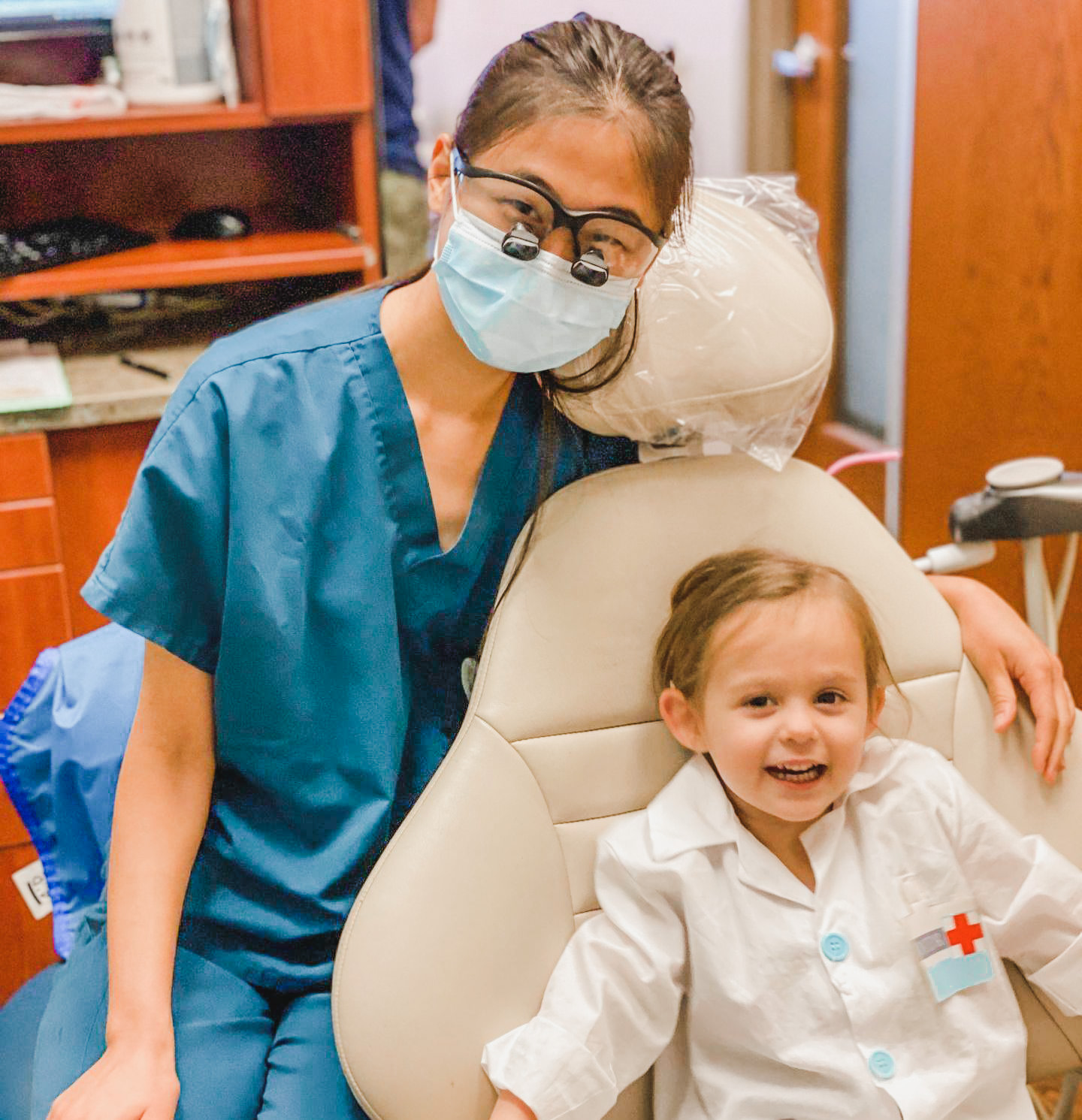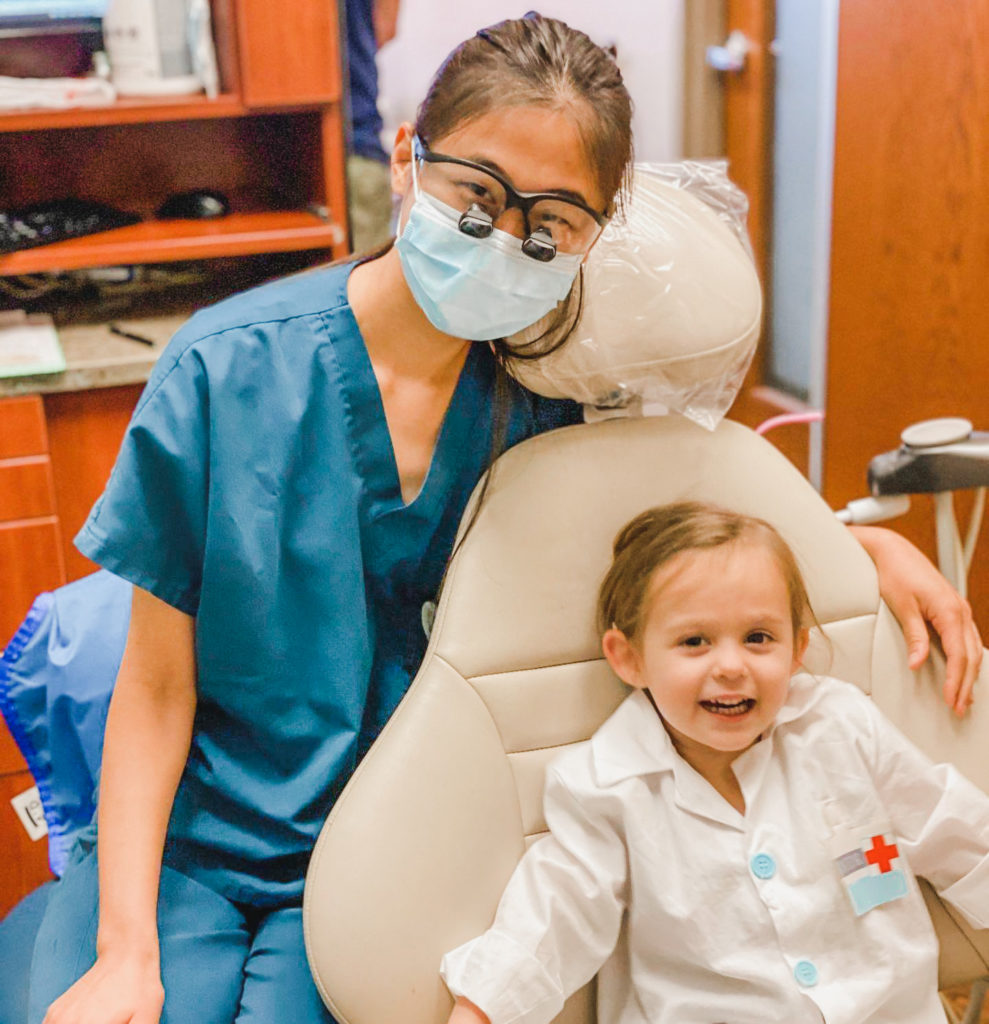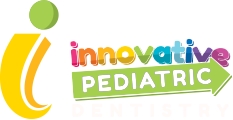
Just like everything else with kids, their smile is constantly developing and evolving. From the time the first tooth erupts to the moment the final permanent tooth makes its debut, there are a lot of changes. With so much going on with children’s smiles, it’s no wonder a number of myths about kids’ teeth have cropped up over the years. Well, as pediatric dental specialists, we’re setting the record straight here at Innovative Pediatric Dentistry by debunking some of the common myths about baby teeth.
Myth: Baby teeth don’t matter since they’re just going to fall out anyway.
Fact: Do baby teeth matter? Absolutely. While, yes, for kids losing teeth is inevitable and all of the baby teeth will eventually be replaced by permanent ones, the primary teeth actually serve a number of important roles.
So, why exactly do baby teeth matter? First and foremost, they act as placeholders and save space for the permanent teeth to come in. When a child loses a baby tooth too early, such as in the case of injury or decay, the other teeth have a tendency to shift to fill in the empty space. This can prevent the permanent tooth below from coming in straight or even lead to impaction where the tooth is unable to come in at all. Additionally, as the teeth shift, it may cause crowded teeth and other orthodontic issues that could require lengthy treatment.
Beyond conserving precious real estate, baby teeth also play a role in a child’s oral and facial development and allow them to chew properly. The teeth are key for producing certain sounds, which is why they help with speech development too.
For all of these reasons, if a baby tooth falls out too early, it’s important to visit your pediatric dentist. We’ll often recommend a dental space maintainer to combat the aforementioned shifting and prevent problems with tooth alignment. Additionally, baby teeth that are decayed should be treated, whether that means with a tooth-colored filling or another restoration. This will help strengthen the natural tooth and allow it to stay in place until it’s time for it to fall out naturally.
Myth: Parents should give kids as much fluoride as possible to prevent cavities.
Fact: Fluoride is extremely important and helps strengthen kids’ teeth and prevent cavities. It can even reverse tooth decay in its earliest stages by remineralizing weak areas of the enamel, against what the myths say about the intolerance of baby teeth. Even more importantly, when kids get enough fluoride while their teeth are still erupting, it will get incorporated into their permanent teeth, which has long-term benefits. The naturally occurring mineral is safe and many kids don’t get enough of it, especially those that only drink bottled water or live somewhere where there isn’t fluoride in their municipal water source.
That being said, there can be too much of a good thing in the case of fluoride. Overdoing it during the first eight years of a child’s life may lead to what’s known as fluorosis. This condition can make permanent teeth look discolored. In mild cases, it can present as white spots on teeth or lacy white markings. In severe cases, it can lead to darker yellow or brown stains and pitting. The good news is, that for mild cases, we can remove white spots on teeth caused by fluorosis using a new technique called ICON Infiltration, however, avoiding the problem in the first place is always a good idea.
So, how much is enough fluoride? We recommend using a fluoride toothpaste for kids as soon as their first tooth erupts. However, recent reports suggest many kids are using way too much. Only use a tiny smear, about the size of a grain of rice, from the time the first tooth comes in up until age three. Then, from ages three to six, use a pea-sized amount and be sure kids are spitting out the excess toothpaste. Older kids just need a thin ribbon. Hold off on fluoride mouthwashes until around age six. When your child visits one of the Naperville pediatric dental specialists at our practice, we’ll talk with you about their fluoride intake and evaluate whether a fluoride treatment can be beneficial for them.
Myth: Babies don’t need to visit the dentist until all of their teeth have erupted.
Fact: It’s recommended that you schedule your baby’s first dental visit at age one. This is because kids can get cavities as soon as their first tooth erupts. A pediatric dentist will ensure your baby’s teeth and gums are healthy, help you develop an excellent homecare routine, check that your child’s oral and dental development are on track, and chat with you about habits like thumb sucking or pacifier use. Additionally, starting dental visits early allows kids to get used to the sights and sounds of the dentist’s office and build a rapport with the doctor and team members. This will help them feel comfortable and make future visits much easier and stress-free for you and your child.
Myth: Kids should start flossing when they get their permanent teeth.
Fact: Flossing kids’ teeth is the key to eliminating plaque that can’t be reached by a toothbrush in order to prevent tooth decay and gum disease. Going back to our first point, baby teeth are important so keeping them healthy and cavity-free is crucial. Start flossing your baby’s teeth once a day as soon as any two teeth are touching.
Myth: Kids can brush their own teeth.
Fact: Children don’t possess the fine motor skills necessary to effectively brush and floss their own teeth until they’re older. A study published in the Journal of Periodontal Research found that five-year-olds only brushed 25% of their teeth’s surfaces. Parents should do the brushing and flossing for babies and toddlers. For preschoolers, you can have them brush their own teeth, but you may want to follow up with a quick once-over to ensure they didn’t miss anything. Continue supervising kids’ teeth brushing and flossing until around age seven or eight.
Myth: My child can go to the same dentist as I do.
Fact: Of course, families can take their children to any dentist they wish and there are probably plenty of general dentistry practices that do a great job treating kids. However, there are very real benefits to visiting a pediatric dentist. Pediatric dental specialists complete two years of additional training in a residency program after dental school where they learn about the unique dental needs of kids, as well as behavioral techniques that can put children at ease to ensure they’re able to get the care they need.
Pediatric dentistry practices are also typically designed for little ones. For example, as a Naperville dentist for kids, our office has child-themed rooms, prizes, games, visits from the Tooth Fairy and, when we’re not in the middle of a pandemic, books, toys, a kidzCave arcade game room and our kidzFlix cinema. Kids actually like visiting and are receptive to the dentist, which sets them up for a lifetime of excellent oral health.
Myth: Dental x-rays aren’t safe for kids.
Fact: The diagnostic benefits of conventional dental x-rays almost always outweigh any small risk. At our practice, we take a high-tech approach and use cutting-edge pediatric dental technology like our NOMAD handheld x-ray device and Gendex digital sensors to take x-rays. These digital x-rays expose kids to up to 90% less radiation than conventional dental x-rays. The small sensors go in your child’s mouth. There are no uncomfortable bitewings and the dental assistant takes the x-ray right there and doesn’t have to run out of the room. We use the proper shielding and only take x-rays when necessary instead of as a matter of routine. When they are necessary, they let us see in between teeth, inside of the teeth and below the gumline, which are all areas that aren’t visible to the naked eye. Spotting problems early allows for easier, less-invasive treatment and will keep your child’s smile healthy and bright.
Now that you know the truth concerning these common myths about baby teeth, are you looking for the best pediatric dentist in Naperville to help take your child’s oral health to the next level? Schedule a visit at Innovative Pediatric Dentistry today by giving us a call at (630) 848-7336!


